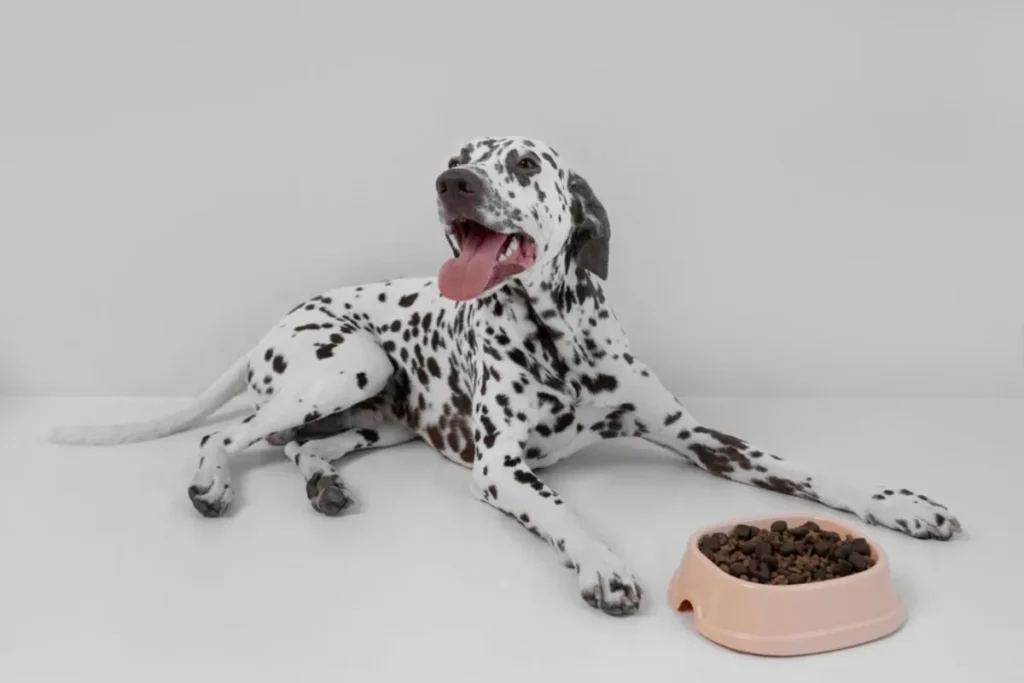The safety and well-being of our pets are paramount concerns for every pet owner.
Recently, a significant recall has shaken the pet food industry, prompting dog owners everywhere to scrutinize what they are feeding their furry companions.
A major dog food brand has issued a recall due to the discovery of “loose metal pieces” in their products, raising alarms about potential health risks.
This article aims to provide a comprehensive overview of the recall, its implications, and steps pet owners can take to ensure their pets’ safety.
The Recall: An Overview

Brand and Product Details:
The recall affects a specific line of dry dog food products from a well-known brand.
The products were distributed nationwide through various retailers, making the scope of the recall extensive.
The affected batches have been identified by specific lot numbers and expiration dates, which have been widely publicized through press releases and the company’s website.
Reason for Recall:
The recall was initiated after routine quality control checks revealed the presence of loose metal pieces in several batches of the dog food.
These contaminants pose significant risks to pets, including potential injury to the mouth, throat, and digestive tract, as well as the possibility of causing internal blockages or lacerations.
Initial Response:
Upon discovering the contamination, the company acted swiftly to halt production and distribution of the affected products.
They also issued a public apology, explaining the situation and emphasizing their commitment to pet safety.
Affected products were immediately removed from store shelves, and consumers were urged to check their pantries and dispose of any impacted items.
Health Risks of Metal Contamination

Physical Injury:
Loose metal pieces in dog food can cause a range of physical injuries to pets.
Sharp metal fragments can lead to cuts and lacerations in the mouth, esophagus, stomach, and intestines.
These injuries can cause severe pain, bleeding, and secondary infections, requiring immediate veterinary care.
Gastrointestinal Blockages:
Ingesting metal pieces can lead to blockages in the digestive tract.
Symptoms of such blockages include vomiting, loss of appetite, abdominal pain, and constipation.
If left untreated, blockages can result in life-threatening complications, including perforation of the intestines and peritonitis.
Choking Hazards:
Larger metal pieces pose a choking hazard, particularly to smaller dogs.
Choking can lead to respiratory distress and requires prompt intervention to prevent suffocation.
Toxicity Concerns:
While the primary concern is physical injury, certain metals can also pose toxicity risks if ingested.
Although the recall does not specify the type of metal found, prolonged exposure to certain metals can have adverse health effects on organs and systems within the body.
Steps to Take if You Have the Recalled Product

Identify the Product:
First and foremost, dog owners should check their dog food packaging against the recall notice.
Look for specific lot numbers, expiration dates, and product descriptions to determine if the food in your possession is part of the recall.
Stop Feeding Immediately:
If you identify that you have the recalled product, stop feeding it to your pet immediately.
Even if no issues have been observed, it is better to err on the side of caution to prevent any potential health risks.
Dispose of the Product Safely:
Dispose of the contaminated dog food in a manner that ensures it cannot be consumed by any animals or retrieved from the trash.
Seal the food in a plastic bag and place it in a secure trash receptacle.
Contact the Manufacturer:
Reach out to the dog food manufacturer for further instructions.
Most companies will offer a refund or replacement for the recalled products.
The contact information can typically be found on the recall notice or the company’s website.
Monitor Your Pet:
Keep a close eye on your pet for any signs of distress or unusual behavior.
Symptoms of ingestion of metal pieces include vomiting, difficulty eating, drooling, abdominal pain, and changes in bowel movements.
If you observe any of these symptoms, seek veterinary care immediately.
Preventative Measures for Pet Owners

Stay Informed:
Keeping up-to-date with pet food recalls can help you act swiftly in the event of a recall.
Sign up for recall alerts from reputable sources, such as the FDA or pet food safety websites, to receive timely notifications.
Inspect Food Regularly:
Before feeding your pet, inspect the food for any foreign objects or abnormalities.
While most contaminants are not visible to the naked eye, being vigilant can sometimes prevent accidental ingestion of harmful substances.
Choose Reputable Brands:
Opt for pet food brands that have a strong track record of quality and safety.
Researching brands, reading reviews, and consulting with your veterinarian can help you choose products from companies that prioritize stringent quality control measures.
Home-Cooked Diets:
For those who prefer more control over what their pets consume, home-cooked diets can be an alternative.
However, it is crucial to ensure that home-cooked meals are nutritionally balanced.
Consulting with a veterinary nutritionist can help you formulate a diet that meets all of your pet’s nutritional needs.
Regular Vet Check-ups:
Routine veterinary visits are essential for maintaining your pet’s health.
Regular check-ups can help detect potential health issues early, including those that may arise from dietary problems.
Industry Implications

Quality Control Standards:
This recall underscores the importance of stringent quality control measures in the pet food industry.
Manufacturers must implement rigorous testing protocols to detect contaminants and ensure the safety of their products before they reach consumers.
Regulatory Oversight:
The recall also highlights the role of regulatory bodies in safeguarding pet food safety.
Agencies like the FDA oversee the pet food industry, ensuring compliance with safety standards and taking action when violations occur.
Increased regulatory oversight and enforcement can help prevent similar incidents in the future.
Consumer Trust:
Recalls can significantly impact consumer trust.
Transparency and prompt action from manufacturers are crucial in maintaining consumer confidence.
Brands that handle recalls effectively by communicating openly with customers and addressing the issue promptly can mitigate long-term reputational damage.
Innovations in Safety:
Technological advancements in manufacturing and testing can enhance pet food safety.
Innovations such as improved metal detection systems, more thorough quality checks, and better packaging designs can reduce the risk of contamination.
Conclusion
The recent recall of dog food due to the presence of “loose metal pieces” serves as a critical reminder of the importance of food safety for our pets.
As responsible pet owners, staying informed about recalls, choosing reputable brands, and being vigilant about what we feed our furry companions are essential steps to ensure their health and well-being.
While this recall has undoubtedly caused concern among pet owners, it also presents an opportunity for the pet food industry to reinforce its commitment to safety and quality.
By implementing stringent quality control measures, enhancing regulatory oversight, and embracing technological innovations, the industry can better protect the health of our beloved pets.
In the meantime, pet owners should take immediate action if they have the recalled product, monitor their pets for any signs of distress, and consult with their veterinarians as needed.
Our pets rely on us for their care and safety, and by staying informed and proactive, we can help ensure they lead healthy, happy lives.

